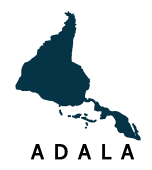Beyond the Tradition-Modernity Opposition:
The Role of Philosophy in Iran Today
DOI:
https://doi.org/10.35305/cl.v1i18.88Keywords:
philosophy, politics, IranAbstract
It is examined the meaning of philosophical reflection in Iran, trying to show that it is the political effervescence what animates it, when motivating the questioning the principles which from it has built the social structure, and which on the ways of life are constituted, as in the pubic dimension as well in the private. Simultaneously, it is made a effort to show how vague could be the explanation of the philosophy’s role through the modernity-tradition opposition, because of the imprecision of these concepts’ use in the analysis of cultural and social phenomena in Iran.
Downloads
References
ʻABBAS, FāḍilʻAbdʻAlī (2017) “Al-Qaṣīda al-ʻIšqiyyalil-Imām al-Jomeinī. Dirāsafīʻirfaniyātihi”. MaŷalaŪrūk 10 (1): 27-37.
AHSAN, Abdul Shakour (1966) “Renaissance in Iran: General”, en: SHARIFF, M. M., A History of Muslim Philosophy. Vol. 2. Wiesbaden: Harrassowitz, pp. 1524-1542.
AL-ATTAS, Muhammad Naqib (2003) “Islām: the concept of the religion and the foundation of ethics and morality”, en: TURNER, Bryan S. (ed.) Islam. Critical Concepts in Sociology. Vol. I. Islam as Religion and Law. Londres - Nueva York: Routdlege, pp. 184-214.
Al-BDOUR, Salman (2001) “Ayatullah Khomeini’s idea of Oneness of Being and the Guardianship of the jurist of self-knowledge”, en: SADRA, Mulla The papers presented at the World Congress on Mulla Sadra Vol. 9, Religion and Gnosis. Teherán: Sadra Islamic Philosophy Research Institute Publication, pp. 177-190.
BOYCE, M. (1987) “ASTVAṰ.ƎRƎTA” en: Encyclopaedia Iranica. Disponible en: http://www.iranicaonline.org/articles/astvat-ereta-savior
CORBIN, Henry (1969) “Para el concepto de una filosofía irano-islámica”, Al-Ándalus 2 (34): 395-407.
CRUZ HERNANDEZ, Miguel (1981) Historia del Pensamiento en el Mundo Islámico. Vol. 2. Desde el Islam andalusí hasta el socialismo árabe. Madrid: Alianza.
DAHLEN, Ashk (2006) “Sirāt al-mustaqīm: One or many? Religious pluralism among Muslim Intellectuals in Iran”, en: ABU-RABIʻ, Ibrahim M. (ed.) The Blackwell Companion to Contemporary Islamic Thought. Oxford: Blackwell Publishing, pp. 425- 448.
ECHEVERRIA, Bolívar (1997) Las Ilusiones de la Modernidad. México D. F.: UNAM.
ECHEVERRIA, Bolívar (2009) ¿Qué es la Modernidad?. México D. F.: UNAM.
ELIASH, Joseph (1969) “The Ithnaʻāshari-Shīʻī juristic theory of the political and legal authority”, Studia Islamica 29: 17-30.
GĀZĪ, Wadād Ŷābir y AL-BARḤĀNĪ, AmalʻAbbās (2018) “IrānwaWilāyyat al-Faqīh. Qirā’atfīẓaw’i al-Dustūr al-Irānī” Maŷala al-Muṣtanssariyyalil-Dirasāt al-ʻArabiyyawa al-Duwaliyya 63: 60-87.
HASHASH, Mohammed (2014) “Abdol karim Soroush: The Neo-Mu’tazilite who buries classical Islamic Thought in defence of religious democracy and pluralism”, Studia Islamica 109 (1): 147-173.
KEDDIE, Nikki (1992) “Irán”, en: VON GRUNEBAUM, Gustave, El Islam. Vol. II. Desde la Caída de Constantinopla hasta nuestros días. México D. F.: Siglo XXI, pp. 137-188.
KEDDIE, Nikki (2010) “Culture and Politics in Iran since the 1979 Revolution”, en: HEFNER, Robert W. (ed.) The New Cambridge History of Islam: Vol. 6 Muslims and Modernity: Culture and Society since 1800. Cambridge: Cambridge University Press, pp. 438-472.
MALEKIAN, Mostafa (2015) “Falsafat al-Dīn. Al-Maŷālwa al-ḥudūd”. Disponible en http://hekmah.org/%D9%81%D9%84%D8%B3%D9%81%D8%A9-%D8%A7%D9%84%D8%AF%D9%8A%D9%86-%D8%A7%D9%84%D9%85%D8%AC%D8%A7%D9%84-%D9%88%D8%A7%D9%84%D8%AD%D8%AF%D9%88%D8%AF-%D9%85%D8%B5%D8%B7%D9%81%D9%89-%D9%85%D9%84%D9%83%D9%8A/
MOUSSAVI, Ahmad Kazemi (2005) “The attitude of the ‘Ulamāʻ towards the Government in Nineteenth Century Iran”, en: LAWSON, Todd (ed.) Reason and Inspiration in Islam. Theology, Philosophy and Mysticism in Muslim thought. Essays in Honour of Hermann Landolt. Londres y Nueva York: I. B. Taurus, pp. 522-537.
NASR, Seyyed Hossein (1966) “Renaissance in Iran: Ḥāji Mulla Hādi Sabziwāri”, en: MIAN Mohammad, A History of Muslim Philosophy. Vol. 2. Wiesbaden: Otto Harrassowitz, pp. 1543 – 1556.
NASR, Seyyed Hossein (2006a) “The School of Isfahan revisited”, en: NASR, Seyyed Hossein, Islamic Philosophy, from its origin to the present. Philosophy in the land of Prophecy. Nueva York: State University of Nueva York, pp. 209-221.
NASR, Seyyed Hossein (2006b) “Reflections on Islam and Modern thought”, en: NASR, Seyyed Hossein Islamic Philosophy, from its origin to the present. Philosophy in the land of Prophecy. Nueva York: State University of New York, pp. 259-271.
NASR, Seyyed Hossein (2006c) “Philosophy in the land of prophecy”, en: NASR, Seyyed Hossein Islamic Philosophy, from its origin to the present. Philosophy in the land of Prophecy. Nueva York: State University of New York, pp. 273-280.
NASR, Seyyed Hossein (2006d) El Corazón del Islam. Madrid: Herder.
NAVABI, Ali Akbar (2007) “Philosophy of Science in Iran”, International Studies in the Philosophy of Science 21 (1): 75-89.
PANAH, Abbas Izad (2001) “Religion in Sadrian Philosophy and Imam Khomeini’s gnosis”, en: The papers presented at the World Congress on SADRA, Mulla (May, 1999, Teheran). Vol. 4. Mulla Sadra and Comparative Studies. Teherán: Sadra Islamic Philosophy Research Institute Publication, pp. 233-244.
PAYA, Ali y SHAHI, Malakeh (2010) “The reception of Kant and his philosophy in Iran”, Journal of Shiʻa Studies 3 (1): 25-40.
RICHARD, Yann (1996) El Islam Shií. Barcelona: Ballaterra.
RIZVI, Sajjad H. (2012) “Only the Imam knows the best The Maktab-e Tafkīk’s attack on the legitimacy of Philosophy in Iran”, Journal of the Royal Asiatic Society 22 (3): 487-503.
RODRIGUEZ ZAHAR, León (2009) La Revolución Islámica Clericial de Irán, 1978-1989. México D. F.: El Colegio de México.
Downloads
Published
How to Cite
Issue
Section
License
Copyright (c) 2019 Claroscuro. Revista del Centro de Estudios sobre Diversidad Cultural

This work is licensed under a Creative Commons Attribution-NonCommercial-ShareAlike 4.0 International License.

















 Centro de Estudios sobre Diversidad Cultural
Centro de Estudios sobre Diversidad Cultural

